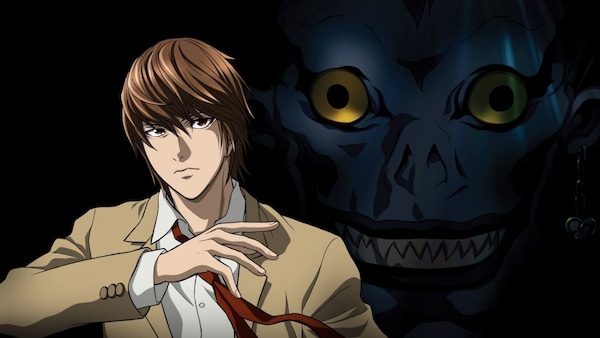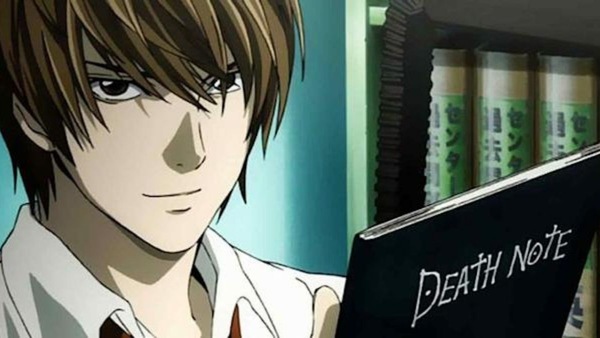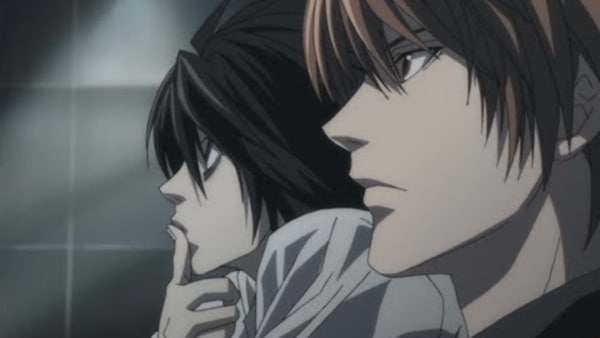Death Note: The art of perfecting binge-worthy television
The iconic Japanese anime celebrates its 15th anniversary this month and is still revered as one of the best crime-thrillers ever produced on any medium

Last Updated: 08.11 PM, Oct 17, 2021
The Japanese entertainment industry has a penchant for producing some of the most captivating tales the world has witnessed, be it manga, anime, or even video games. An anime truly stands on its own when in the midst of iconic works such as Steins; Gate, FullMetal Alchemist; Brotherhood, Neon Genesis Evangelion, Attack on Titan, and several others, it commands special recognition. Death Note is unique not because it has a superior story to the aforementioned titles, but because of how it has neatly compressed riveting narratives into each of its 30-minute episodes without overwhelming the audience.
For comparison, take Disney’s latest Marvel animated series What if…? for instance. The 30-minute runtime has compromised some of the episodes because the writers were unable to find the right balance in its pacing on a consistent basis. While some episodes did deliver nuanced and well-paced stories, others were simply unable to decode the right formula. They either had a little too much content to offer, in terms of characters and subplots or at times offered far too little. It is not a badly produced animated series by any means, but it was held back by the lack of nuanced writing.
This is where Death Note truly distinguishes itself from other animated shows, of course, there are several Japanese anime that offer similar levels of suspense and drama but it taps into contemporary socio-political conundrums unlike any other. Anime such as Neon Genesis Evangelion does involve subtext of deep philosophical juxtapositions focusing on existentialism and humanity as a collective organism, whereas Death Note, despite the plot being centred on supernatural fantasy, is a critique on an individual’s understanding of their role in society and their grasp of contemporary political ideologies.
Death Note’s secret to a resounding success is the fact that it is asking its viewers to put themselves in the shoes of the plot’s central character, Light Yagami. The narrative is shown in Light’s perspective and forces the audience into a false sense of compliance with his actions. which involves him murdering people who he deems as social deviants. The Death Note grants him the power to have anyone killed by writing down their names in the book. His initial entries were violent criminals who have slipped through the cracks in the judicial system, then it escalates to every criminal in the city, and finally, to all those who stand in the way of his delusion to create a Utopia in his image — he becomes the judge, jury, and executioner.

The plot rests on the foundation that if the Death Note came into the possession of anyone other than Light Yagami, they would eventually fall victims for not being able to abide by the many rules of the book. Light’s intelligence is what makes him a truly complex character, and what enables him to manipulate the rules of the book to his advantage, thus making him the most powerful person on the planet. It is the reason why the character L, his nemesis, acts as an essential counterbalance. L’s introduction gives a new perspective to the idea of what one would define as justice.
‘Justice’ is in fact the core theme of the narrative, which presents a very complex question to the viewers about the very definition of the term. Some might consider Light’s work, or Kira’s work, the alias under which he operates, as a necessary evil to rid society of crime. But ultimately would the rest of the world want a high school student, regardless of his intellect, to wield such power over their very fate at the hands of a teenager who is morally conflicted and has narcissism in abundance. This juxtaposition of ideologies constantly forces the viewers to introspect their own inner beliefs about justice.

The beauty of all this is how the creators have edited each 30-minute episode with edge-of-the-seat plots and subplots that will keep one glued to the screen until episode 37, which is the finale. Death Note remains one of the most complex yet relatable stories ever created by the brilliant minds from Japan, informing the audience that absolute power corrupts even the noblest of humans.

